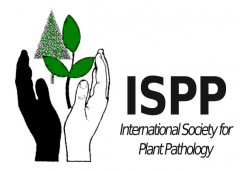A “BLACK” FUTURE FOR PLANT PATHOLOGY BIOCHAR AS A NEW SOIL AMENDMENT FOR CONTROLLING PLANT DISEASES
G. Bonanomi, F. Ippolito, F. Scala
doi: 10.4454/jpp.v97i2.3381
Abstract:
The utilization of organic amendments has been pro- posed to decrease the incidence of plant diseases caused by soilborne pathogens. In this work we reviewed reports concerning disease suppressiveness by the new organic amendment biochar. A total of 12 papers were included in this analysis with 61 experimental case studies. The ef- fect of biochar amendment was suppressive in 85%, non- significant in 12%, with only 3% of studies reporting a significant increase of disease incidence. Biochar can be effective against both airborne (e.g. Botrytis cinerea, differ- ent species of powdery mildew) and soilborne pathogens (e.g. Fusarium spp., Phytophthora spp., Rhizoctonia solani). Five different mechanisms have been proposed to explain biochar disease suppression: (i) induction of systemic resis- tance in host plants; (ii) enhanced abundance and activities of beneficial microbes, including mycorrhizal fungi; (iii) modification of soil quality in terms of nutrient availabil- ity and abiotic conditions such as liming effect; (iv) direct fungitoxic effect of biochar; (v) sorption of allelopathic, phytotoxic compounds that can directly harm plant roots and thus promote pathogen attacks. Potential side-effects of biochar have been reported, like the possibility of ab- sorbing agrochemicals like herbicides, insecticides and fungicides, thus reducing their efficacy. Results from this review demonstrate that biochar amendments have great potential but, until now, not enough studies are available for a widespread adoption of biochar as a soil amendment in today’s agricultural systems. More investigations on the mechanisms underlying biochar disease suppression, as well as long-term field experiments, are needed to make biochar a safe, effective and affordable tool for the control of plant pathogens.




